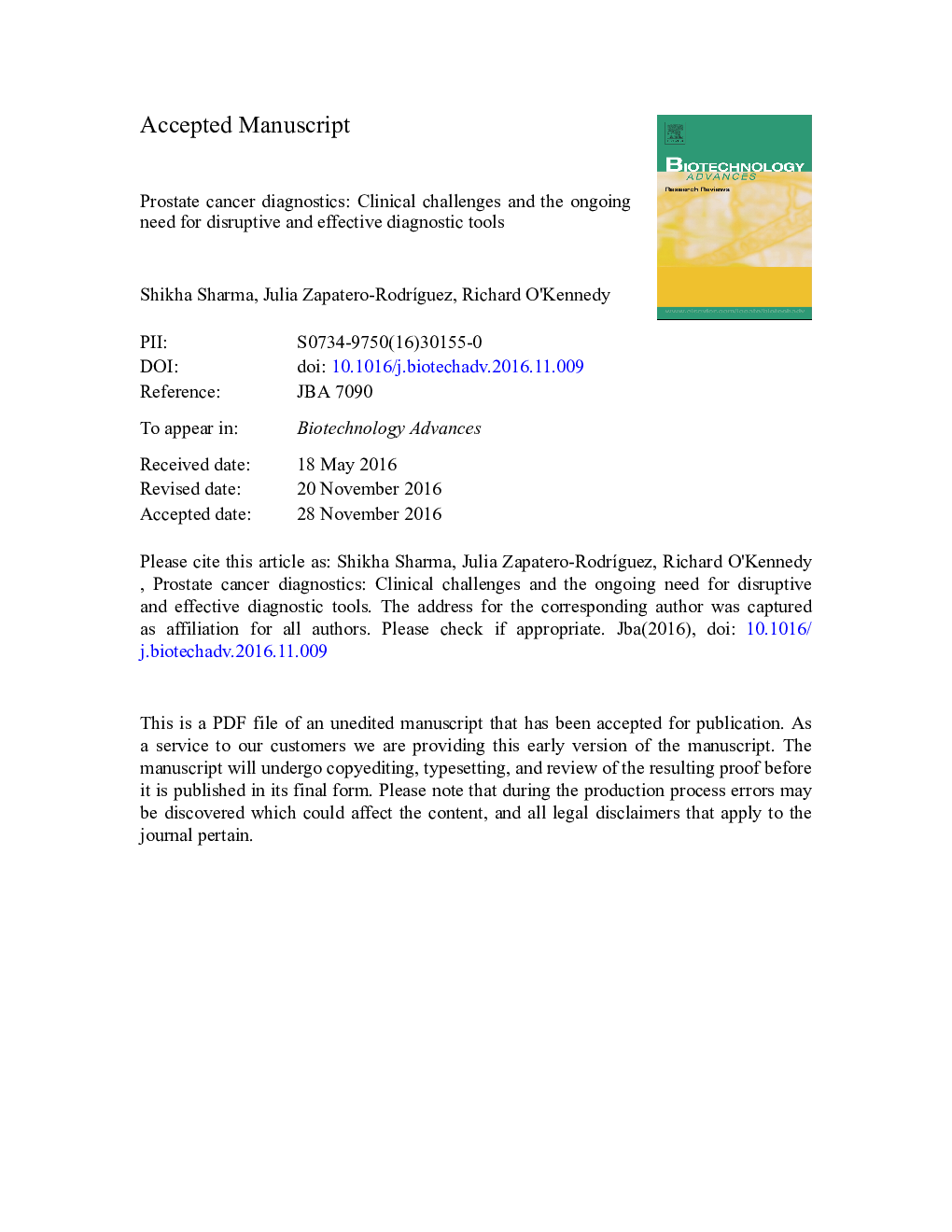| Article ID | Journal | Published Year | Pages | File Type |
|---|---|---|---|---|
| 4752546 | Biotechnology Advances | 2017 | 42 Pages |
Abstract
The increased incidence and the significant health burden associated with carcinoma of the prostate have led to substantial changes in its diagnosis over the past century. Despite technological advancements, the management of prostate cancer has become progressively more complex and controversial for both early and late-stage disease. The limitations and potential harms associated with the use of prostate-specific antigen (PSA) as a diagnostic marker have stimulated significant investigation of numerous novel biomarkers that demonstrate varying capacities to detect prostate cancer and can decrease unnecessary biopsies. However, only a few of these markers have been approved for specific clinical settings while the others have not been adequately validated for use. This review systematically and critically assesses ongoing issues and emerging challenges in the current state of prostate cancer diagnostic tools and the need for disruptive next generation tools based on analysis of combinations of these biomarkers to enhance predictive accuracy which will benefit clinical diagnostics and patient welfare.
Related Topics
Physical Sciences and Engineering
Chemical Engineering
Bioengineering
Authors
Shikha Sharma, Julia Zapatero-RodrÃguez, Richard O'Kennedy,
